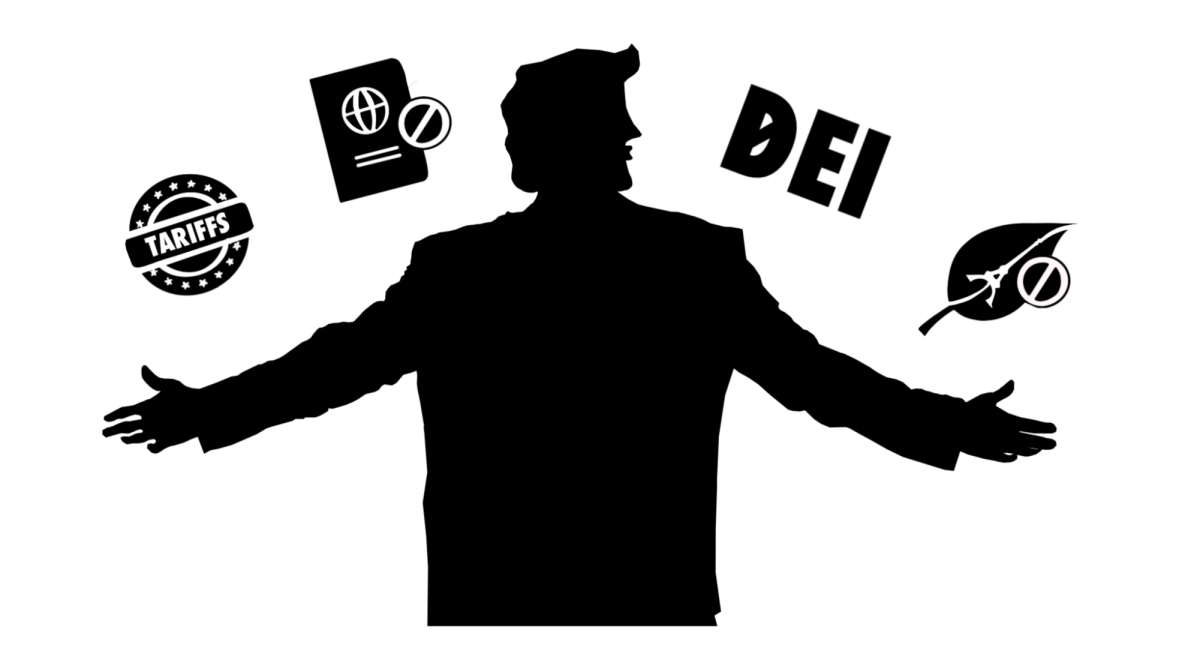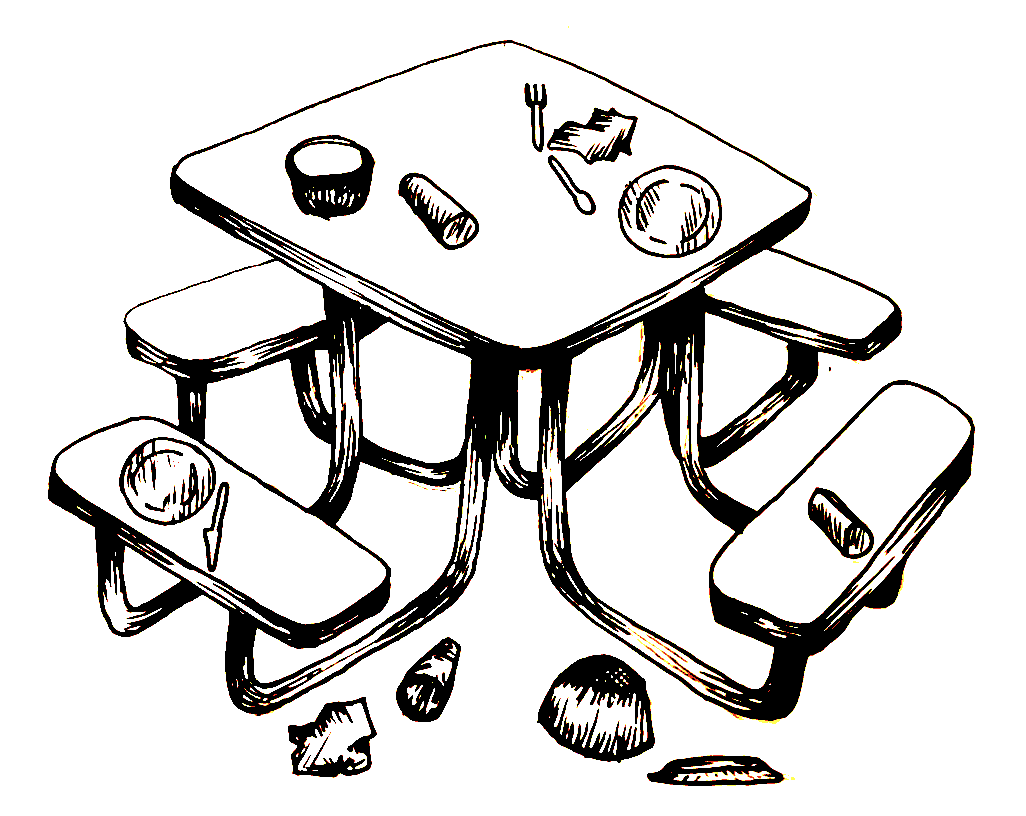Despite taking office just over two months ago, President Donald Trump has instituted drastic policy changes. While bringing back many initiatives from his first administration, such as strict border enforcement and deregulatory climate policies, Trump has also introduced unprecedented tariffs and ordered mass government layoffs.
Specifically, Trump has pledged to increase oil drilling and logging, slowed or halted many of the renewable energy initiatives the previous administration put into place and pulled out of the Paris Agreement, an international agreement on climate change signed in 2016.
Some Menlo students, including sophomore Sophie Michel, found Trump’s fossil-fuel-friendly climate policies particularly concerning. “I believe that Trump’s decision to pull out of the Paris Agreement is going to have detrimental effects on the environment,” she said.
In contrast, junior Sachin Sandhu said he wasn’t very upset that Trump removed the U.S. from the Paris Agreement. Sandhu believes the agreement treated the U.S. unfairly when compared to China.
In his speech to Congress on March 4, Trump claimed he wanted to balance the budget while also discussing lowering taxes. To balance the budget, the government can drastically increase the amount of money it brings in, reduce spending or most realistically, a combination of both. Balancing the budget while taxing less is very difficult. Trump has said that money collected via tariffs, which he has said is “the most beautiful word in the dictionary,” could help improve America’s budget position. He also believes they could help bolster American industry, although the S&P 500 — the index tracking the stock performance of 500 of the largest American companies listed on stock exchanges — is down 4.5% since Trump took office, as of March 25.
Sandhu agrees with some of Trump’s economic policies. “His tariffs and him not signing the Paris accord have moved a lot of the auto industry back from Japan and [electric] batteries [from] China back to America, […] and so I think a lot of that stuff is going to be really good,” he said.
Senior Tyler Fernandez is more skeptical of Trump’s use of tariffs. “[In Environmental and Developmental Economics] we learned […] if one person stands up, then everyone else is going to stand up. And that’s kind of what’s going to happen with tariffs; […] if we stand up and say we’re going to make prices more expensive, […] everyone’s just going to do the same,” Fernandez said. “It’s going to cause worldwide inflation.”
Fernandez also disapproves of Trump’s mass-deportation plans. Trump has pledged to oversee the largest deportation in American history by removing newer arrivals and expanding deportation guidelines. “I understand how there could be seen as [being] an immigration problem in the United States, but I do think that [Trump is] going about it the wrong way, […] pulling these people who immigrate illegally out of their families and leaving their kids here,” Fernandez said.
Trump has also taken a critical stance on transgender issues and DEI. He signed an executive order banning transgender people from the military and has restricted transgender women’s access to girls’ sports and women’s prisons. He has also rolled back government DEI efforts, a move many large companies have recently taken. Many universities, faced with federal pressure, have also scaled back DEI programs; Menlo, for its part, has kept its EDIB department, continuing initiatives that aim to retain a diverse faculty and provide family-support programs that incorporate many aspects of identity.










